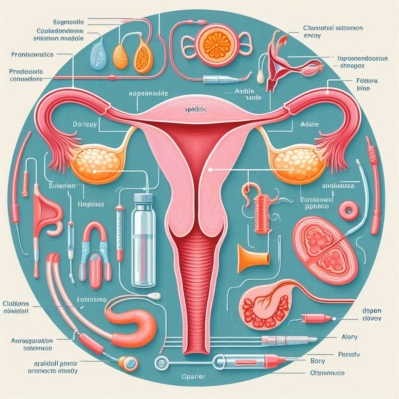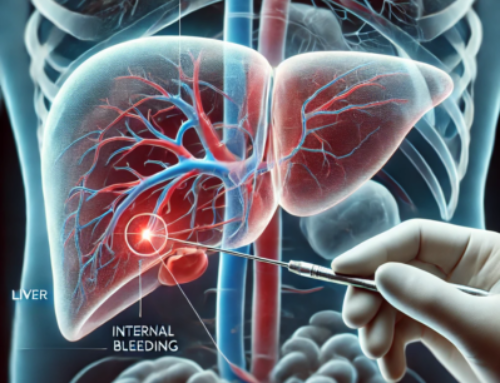Mayra G. Higareda Garcia v. William F. Davis, M.D.
On May 08, 2024, the California jury returned a defense verdict in the present medical malpractice lawsuit stating they did not find any negligence on Dr. William Davis’ part in the treatment or diagnosis of the Plaintiff patient.
Case Background
On December 18, 2019, Plaintiff Mayra G. Higareda Garcia filed a medical negligence lawsuit against Dr William Davis before the California State, Orange County, Superior Court. Hon. Michael J. Strickroth presided over this lawsuit. [Case number: 30-2019-01119117]
Cause
On September 7, 2018, Plaintiff Mayra G. Higareda Garcia, aged 24, underwent bilateral tubal fulguration surgery performed by Dr. Ana Sanchez. Later, on September 20, 2018, she was rushed to Orange County Global Medical Center’s emergency room with severe right lower quadrant abdominal pain rated 8 out of 10. A CT scan suggested a perforated appendix, though it could not rule out ovarian torsion. A subsequent pelvic ultrasound excluded ovarian torsion, favoring a perforated appendix as the likely cause.
Defendant Dr. William Davis consulted as a surgical specialist, informed the patient that she likely had a perforated appendix, and obtained consent for a laparoscopic appendectomy. He mentioned a 10-15% chance of alternative sources for the pain, possibly involving the right fallopian tube and ovary, which the patient disputed but was not documented.
Dr. Davis performed the laparoscopic appendectomy, finding the appendix intact and normal. He then addressed dense adhesions in the right deep pelvis, deciding to remove the inflamed right fallopian tube and ovary due to perceived infection. Unable to complete this laparoscopically, he converted to an open procedure and successfully removed them.
According to the hospital pathologist’s report, the appendix was perforated, and the right fallopian tube and ovary were inflamed but showed no signs of infection. The Plaintiff filed a lawsuit alleging medical negligence and medical battery as the Defendant removed more organs than she had consented to.
Injury
Since undergoing the surgery, Plaintiff experienced additional painful abdominal adhesions and scar tissue, issues that could have been prevented with the originally consented appendectomy. Additionally, she suffered from depression, hair loss, food intolerance, headaches, decreased interest in sexual activity, and vaginal dryness. Before Dr. Davis’s surgery, Plaintiff worked as a housekeeper earning $15,000 annually. She claimed to have lost three years of earnings since the surgery and anticipated losing another 13 years of future earnings.
Damages
The damages sought by Plaintiff included compensation for various categories, such as general damages covering subjective losses like pain, suffering, emotional distress, and loss of enjoyment of life. This encompassed damages for inconvenience, mental suffering, injury to reputation, and humiliation.
Further, Plaintiff claimed reimbursement for all past and future medical expenses, including hospital bills, surgical costs, and related out-of-pocket expenses. Economic losses, such as loss of earnings and earning capacity, were also included. The Plaintiff requested prejudgment and post-judgment interest, as well as reimbursement for all legal costs incurred. They also sought any other relief that the court deemed appropriate and just in the circumstances.
Key Arguments and Proceedings
Legal Representation
- Plaintiff(s): Mayra G. Higareda Garcia
- Counsel for Plaintiff(s): Jihad M. Smaili | Stephen D. Counts
- Experts for Plaintiff(s): Charles Dubin, M.D
- Defendant(s): William F. Davis, M.D.
- Counsel for Defendant(s): Terrence J. Schafer
- Experts for Defendant(s): Frank Candela, M.D. | Karie McMurray, M.D. | Michael Fishbein, M.D.
Claims
Plaintiff argued that Dr. Davis breached the standard of care by removing her right fallopian tube and ovary without her consent, contending he should have halted the surgery after removing the appendix, as explicitly authorized by the patient. It was also asserted that the appearance of the right tube and ovary, normal as expected 13 days post bilateral tubal fulguration, would have been evident if Dr. Davis had consulted a gynecologist.
Defense
The Defendant maintained that Dr. William Davis provided care to the patient that adhered to the standard of care in every aspect. The medical indications justified Dr. Davis’s proceeding with a diagnosis of a perforated appendix before surgery. He contended he would have informed the patient that other sources in the right lower abdomen and pelvis, such as the fallopian tube and ovary, could be causing her pain. Upon finding the appendix normal, Dr. Davis believed it was his duty to investigate the cause of the patient’s symptoms.
Upon discovering an inflamed right fallopian tube and ovary, Dr. Davis concluded these were responsible for the patient’s abdominal pain and was justified in removing them without consulting a gynecologist.
Pathology slides later confirmed the appendix was internally normal but externally damaged by inflammation, indicated by granulation tissue. The right ovary showed signs of thermal damage from prior tubal fulguration and necrosis due to blood supply disruption. The Defendant argued these findings supported Dr. Davis’s decision during surgery that the right fallopian tube and ovary were indeed the source of the patient’s pain. This surgery was seen as necessary to protect the patient’s health, which negated the necessity for explicit consent from the patient before the operation.
Expert Testimony
The Plaintiff relied on the expertise of Dr. Charles Dubin, a gynecologist, to support her claims against Dr. William Davis. Dr. Dubin testified that there was no medical justification for the removal of Plaintiff’s right fallopian tube and ovary without her explicit consent. He argued that Dr. Davis breached the standard of care by proceeding with this surgery after removing the appendix, which was the only procedure for which Plaintiff had given consent.
In defense, Dr. Davis relied on the expert testimony of Drs. Frank Candela, Karie McMurray, and Michael Fishbein.
Jury Verdict
On May 08, 2024, the California jury, after a twelve-day trial, found in favor of Defendant Dr. William Davis. The jury unanimously agreed that the standard of care had been met. However, the jury was divided 10-2 on the medical battery cause of action. In the special verdict form, the jury stated that there had been no medical negligence in the treatment and diagnosis of the Plaintiff.
On May 31, 2024, Hon. Michael J. Strickroth entered a judgment affirming the jury verdict.
Court Documents:
Available upon request







Leave A Comment